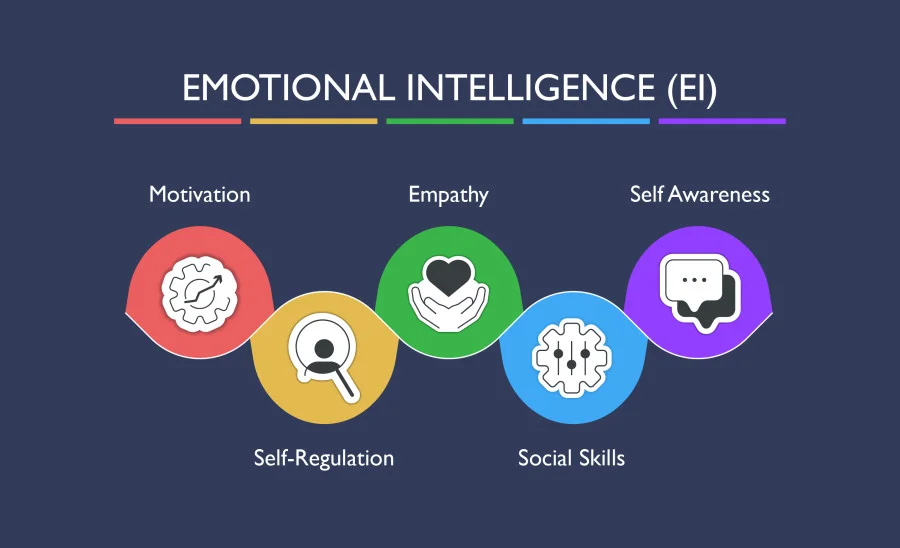Are you looking to know Which insights about career success surface from emotional intelligence? then read this article to find out Which insights about career success surface from emotional intelligence?

Career outcomes are more heavily influenced by emotional intelligence than by technical skills alone. Research indicates that professionals who effectively manage and handle emotions tend to advance their careers more quickly. caffeyolly.com shares insights into workplace growth and development trends. This matters because most professionals concentrate solely on technical abilities while overlooking interpersonal capacities. Evidence from various industries shows why talented individuals sometimes plateau while others with ordinary technical prowess rise steadily.
Building relationships
The quality of someone’s professional connections directly influences their career advancement. Chances come through people who respect and trust you. Your abilities get you noticed initially, but relationships decide who actually gets picked. Important relationship facts include:
• Your impact on others’ feelings outlasts the memory of your achievements
• Trust accumulates gradually through reliable behaviour across months and years
• Minor acts of thoughtfulness add up to solid professional connections
• Damaged relationships shrink your future choices more than people expect
Smart professionals nurture relationships long before needing anything. They assist others without calculating immediate benefits. When openings appear, they have contacts ready to speak on their behalf. People without this emotional skill often puzzle over being overlooked despite having impressive credentials.
Leadership with empathy
Leaders with empathy spot team struggles before situations explode. They address worries early, preventing minor troubles from escalating. Their teams feel recognised and appreciated, which cuts turnover and boosts extra effort. Technical mastery in leadership positions counts less than drawing out people’s best work. Many technically gifted individuals struggle as managers because they find it challenging to connect with their staff. They focus on assignments and timelines while overlooking the human factors that drive performance. Their teams do the bare minimum but never contribute fully. The manager cannot understand why superior technical knowledge fails to create team success.
Regulate your emotions
Reactions to pressure and failures shape professional standing. Co-workers remember who kept composure during emergencies more than who contributed equal technical work but fell apart. Staying in control when things get tough builds credibility, which creates future opportunities. People who manage emotions well show particular characteristics:
- They hear bad information without panic that infects others
- Feedback gets absorbed privately instead of sparking visible defensiveness
- Annoyance converts into solving problems rather than assigning blame
- Setbacks produce strategy changes instead of surrender
Workplaces constantly judge emotional control. A single meltdown wrecks a reputation built over years. Decision-makers pause before promoting someone they fear might buckle under pressure. Whether this seems fair or not, emotional steadiness has a significant impact on career movement, just as technical capability does.
Social awareness reads situations
Every workplace has unofficial influence networks that differ from organisational charts. Socially intelligent workers identify actual decision makers and connectors. They recognise which conflicts deserve attention and which need to be avoided. This skill enables them to progress while their equally capable colleagues remain stuck, fighting battles that cannot be won. Missing social signals hurts careers in quiet ways:
- Speaking during the wrong moments strains ties with important people
- Breaking invisible cultural rules creates permanent outsider labels
- Misunderstanding power structures means supporting losing factions
- Overlooking informal channels causes the loss of crucial information flows
Technical specialists frequently dismiss workplace politics as unimportant or distasteful. This attitude caps their rise, while less technically strong but more socially attuned peers advance. These capacities shape career paths as powerfully as technical knowledge. Workers who develop both technical and emotional abilities advance beyond those who emphasise one area. Workplaces reward individuals who combine competence with effective collaboration.